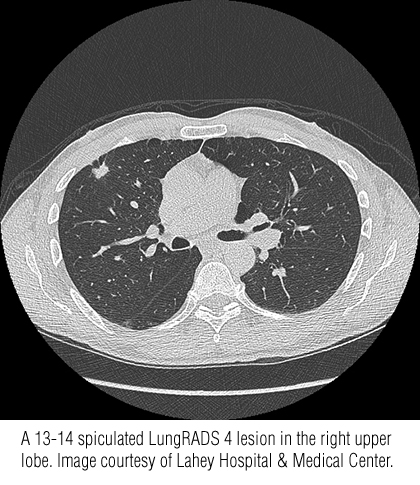Low-dose CT Lung Screening Reduces Mortality
 According to research presented at the IASLC 2021 World Conference on Lung Cancer, low-dose CT lung cancer (LDCT) screening is associated with a 16% relative reduction in lung cancer mortality, when compared against a non-LDCT control arm. The research was presented by lead investigator Professor John Field, MA, PhD, BDS, FRCPath, of The University of Liverpool, Liverpool, United Kingdom, and the United Kingdom Cancer Screening Trial (UKLS) Team.
According to research presented at the IASLC 2021 World Conference on Lung Cancer, low-dose CT lung cancer (LDCT) screening is associated with a 16% relative reduction in lung cancer mortality, when compared against a non-LDCT control arm. The research was presented by lead investigator Professor John Field, MA, PhD, BDS, FRCPath, of The University of Liverpool, Liverpool, United Kingdom, and the United Kingdom Cancer Screening Trial (UKLS) Team.
The UKLS is a randomized controlled trial, comparing LDCT screening with usual care in a high-risk population selected using the LLPv2 risk model, and having a unique Wald single LDCT screening design, in a high-risk population. The researchers randomly allocated 4,055 participants between October 2011 and February 2013 for either a single invitation to LDCT screening or no screening (usual care). Data were collected on lung cancer cases and deaths to February 29, 2020 through linkage to national registries. The primary outcome was mortality due to lung cancer.
Previous studies, such as the National Lung Cancer Screening Trial and The NELSON LDCT screening trial, provided evidence of a statistically significant reduction (20%, 24% respectively) in lung cancer mortality.
Risks for the UKLS were calculated using LLPv2, which is a modified version of the published LLP model, which incorporates age, smoking duration, family history of lung cancer, history of previous malignancies and exposure to asbestosis and other potential respiratory risk factors (bronchitis, emphysema, tuberculosis and COPD) in addition to pneumonia, and treats cigar and pipe smoking as conferring an identical risk to cigarette smoking.
The team analyzed 1,987 UKLS participants in the intervention arm and 1,981 in usual-care arm and followed them for 7.4 years. During this time, 30 lung cancer deaths were reported in the screening arm, 46 in the control arm. The primary analysis showed a relative rate 0·65 [95% CI 0·41-1·03]; p=0·065. LDCT screening was associated with a 16% relative reduction in lung cancer mortality, when compared against a non-LDCT control arm (RR 0·84 [0·76 – 0·92]) with no significant heterogeneity (p= 0·32, I 2=13·7%). The relative benefit in terms of lung cancer mortality was seen most strongly in the three to six years after randomization.
Prof. Field and his team at UK-based centers also included their results in a random-effects meta-analysis to provide a synthesis of the latest randomized trial evidence. Results from these nine randomized controlled trials were included in the meta-analysis indicated a significant reduction in lung cancer mortality.
"The UKLS mortality data and recent meta-analysis provides the impetus to now put in place a long-term lung cancer screening programs internationally and especially encourage nations in Europe to start their own implementation programs. Lung cancer early detection and surgical intervention saves lives," Dr. Field reported.
Related Articles
Citation
Low-dose CT Lung Screening Reduces Mortality. Appl Radiol.
September 13, 2021